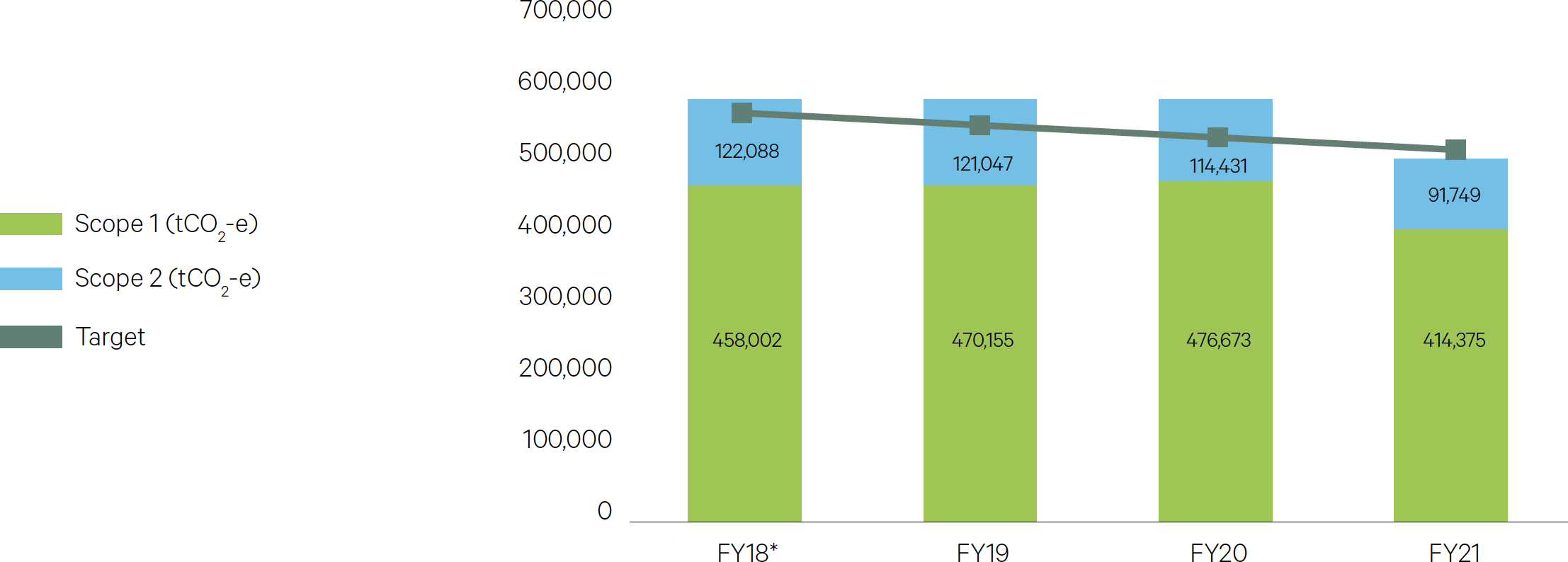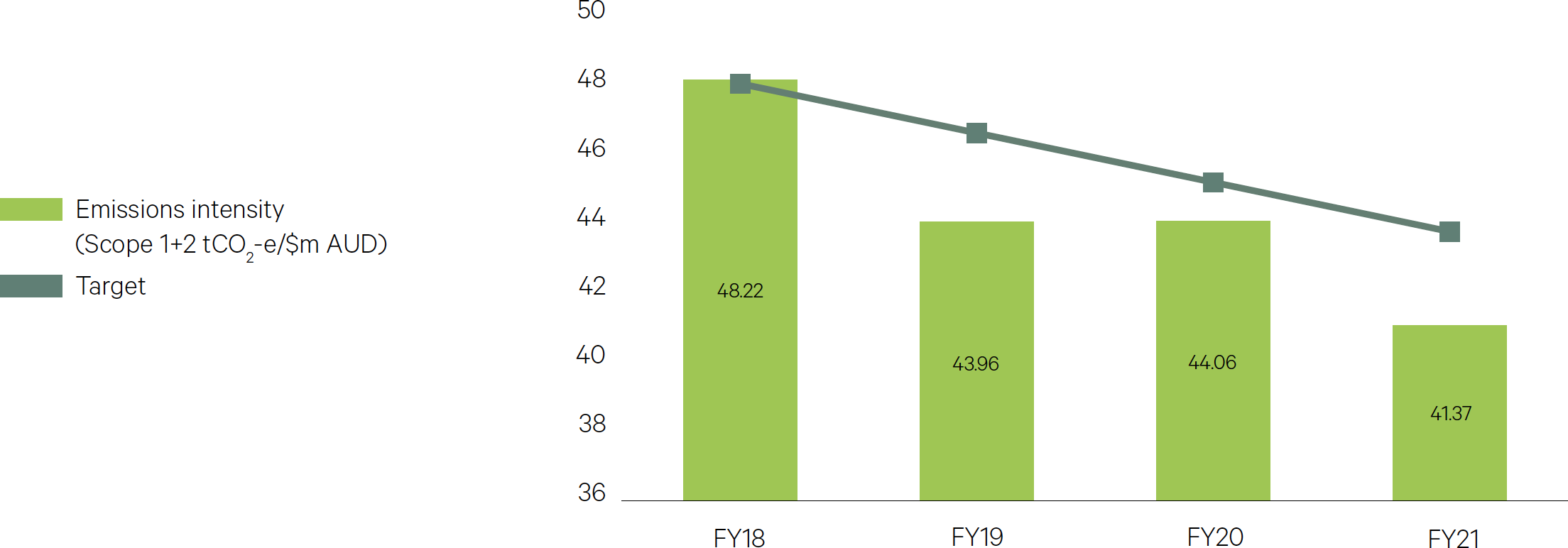Climate risk and Downer’s decarbonisation pathway
Downer acknowledges that climate change mitigation is a shared responsibility. To support the transition to a low-carbon economy in an equitable manner, Downer recognises the need to develop emissions reduction targets that align with the 2015 Paris Agreement goals to pursue efforts to limit the temperature increase to 1.5°C by the end of this century.
In 2019, we leveraged the Science-Based Target Initiative’s framework and guidance to set an ambitious long-term GHG emissions reduction target (aligned to a 1.5°C pathway). We committed to the decarbonisation of our absolute Scope 1 and 2 GHG emissions by 45-50 per cent by 2035 from a FY18 base year, and to being net zero in the second half of this century. In FY21, we tightened this commitment by pledging to be net zero by 2050.
Downer will track our progress towards these emissions reduction targets and review our emissions reduction approach in line with Intergovernmental Panel on Climate Change (IPCC)’s updated scientific reports, while also considering other developments in low-emissions technology to ensure a practical and affordable transition towards this commitment.
Science-Based Target performance

* Split between Scope 1 and 2 emissions for FY18 has been re-stated due to the provision of more accurate data. Total Scope 1 and 2 emissions for FY18 remains unchanged.
Science-Based Target performance (intensity)

As Downer continues to focus on its Urban Services businesses, the expected economies of scale in being a larger player in a smaller number of sectors should continue to provide benefits from an emissions intensity perspective.
Downer has a clear pathway to being net zero by 2050, which aligns to our Urban Services strategy. Downer’s decarbonisation pathway, key tenets and progress are outlined below:
Progress on decarbonisation pathway
In addition to these strategies, in September 2020 Downer New Zealand signed the Energy Transition Accelerator (ETA) partnership with the Energy Efficiency and Conservation Agency, which secures funding for developing decarbonisation roadmaps and recruiting an Energy and Carbon Graduate. Led by Downer New Zealand’s Sustainability Governance Group, the program has so far focused on our asphalt and bitumen plants, which are carbon intensive by nature and represent approximately 20 per cent of our carbon footprint. After running workshops with the operational teams of these assets, we have finalised the first drafts of the roadmaps, which outline the steps and investments that need to be taken to achieve our decarbonisation goals without impacting operational performance.
Downer recognises the uncertainties, challenges and opportunities that climate change presents and, despite the impacts of COVID-19, Downer remains committed to partnering with our customers and supply chain to achieve our long-term GHG emissions reduction target.

